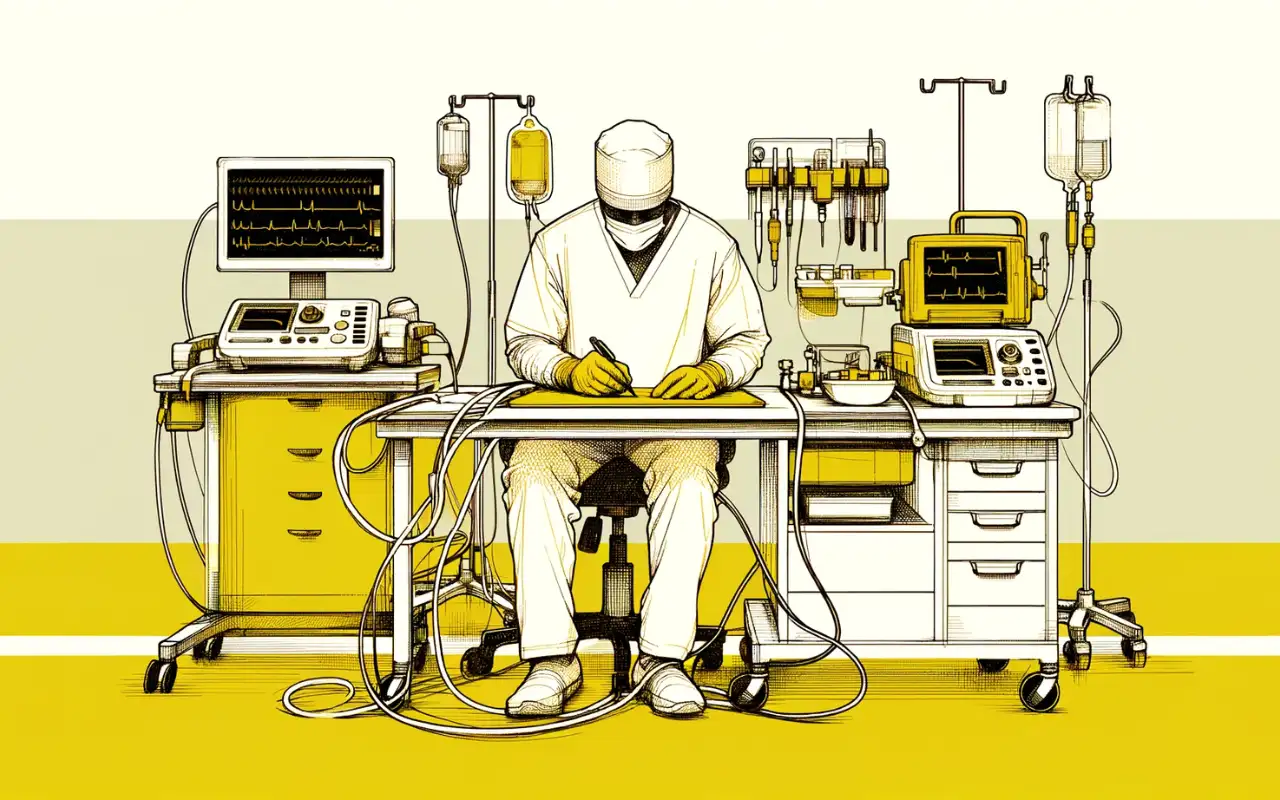A medical technician is a healthcare professional trained to perform various diagnostic tests and procedures to assist physicians in diagnosing and treating patients.
They work in various medical settings such as hospitals, clinics, laboratories, and research facilities.
Medical technicians may specialize in areas such as radiology, laboratory technology, cardiology, or respiratory therapy.
Their responsibilities include collecting and analyzing samples, operating medical equipment, performing routine tests, maintaining patient records, and ensuring the accuracy and reliability of test results.
How Much Does A Medical Technician Earn in South Africa
The average salary for medical technicians in South Africa stands at R 17,924 per month, based on nine reported salaries as of November 2023.
The highest paying city for medical technicians is Pretoria, where the average salary is R 7,628 per month, according to data from ten reported salaries.
Factors Affecting Medical Technician Salary in South Africa
1. Specialization
Different medical technician specializations have varying salary ranges due to their required skills, experience levels, and demand within the healthcare system. For instance, cardiopulmonary technicians typically earn more than phlebotomists.
2. Location
Salaries can differ significantly based on the geographic location within South Africa. Urban areas like Johannesburg and Cape Town generally offer higher salaries than rural areas due to higher living costs and potentially greater demand for medical technicians.
3. Experience
As with most professions, medical technicians with more experience command higher salaries. Their accumulated expertise and proven track record make them more valuable assets to healthcare facilities.
4. Qualifications
Higher educational qualifications, such as diplomas or degrees in specific medical technology fields, can lead to higher earning potential. Additional certifications or specialized training can further enhance salary prospects.
5. Employer Type
The type of employer can also influence salary. Public hospitals and clinics often have fixed salary structures, while private practices or laboratories may offer higher salaries to attract and retain qualified technicians.
6. Work Environment
Certain work environments, such as those with high-pressure situations, exposure to hazardous materials, or extended on-call hours, may warrant higher compensation to incentivize qualified professionals.
7. Demand and Supply
The balance between the demand for medical technicians and the available workforce in a particular region can impact salaries. Areas with a shortage of qualified technicians may offer higher salaries to attract talent.
8. Negotiation Skills
Effective negotiation skills can be instrumental in securing a higher starting salary or negotiating raises throughout a medical technician’s career.
9. Performance and Reviews
Strong job performance and positive performance reviews can position medical technicians for salary increases or promotions, leading to higher earnings over time.
10. Benefits and Incentives
While not directly part of base salary, the value of benefits packages and incentives offered by employers can significantly impact a medical technician’s overall compensation. These may include health insurance, paid time off, pension plans, and other perks.
Education and Qualifications of A Medical Technician in South Africa
1. Completion of Matriculation
A National Senior Certificate (NSC) with a minimum Bachelor’s pass (40%) is the baseline requirement for most medical technician programs.
2. Specific Diploma or Degree
Depending on the specialization, a Diploma in Medical Technology or a relevant Bachelor’s degree (e.g., Medical Laboratory Sciences, Radiography) is mandatory.
3. Registration with the Health Professions Council of South Africa (HPCSA)
All medical technicians must register with the HPCSA, meeting their specific requirements for each specialization. This includes submitting proof of qualifications, passing national examinations, and maintaining ethical codes.
4. Ongoing Professional Development
Continuous learning is crucial. Regular attendance at workshops, conferences, and accredited training programs is encouraged to stay updated on advancements in the field.
5. Specialization-Specific Certifications
Some specializations require additional certifications beyond the basic HPCSA registration. For example, radiographers might need specific certifications in X-ray, CT scans, or MRI.
6. Clinical Internship or Practical Training
Most programs include a mandatory internship or practical training component to gain real-world experience under supervision.
7. Language Proficiency
Strong English proficiency is essential for effective communication within healthcare settings, especially considering South Africa’s diverse population.
8. Computer Literacy
Proficiency in medical software and data management systems is increasingly required for efficient work in modern healthcare environments.
9. Soft Skills
Excellent communication, teamwork, critical thinking, problem-solving, and interpersonal skills are vital for successful interaction with patients, colleagues, and other healthcare professionals.
10. Personal Qualities
Qualities like attention to detail, empathy, compassion, resilience, and a strong work ethic are highly valued in medical technicians who directly contribute to patient care.

